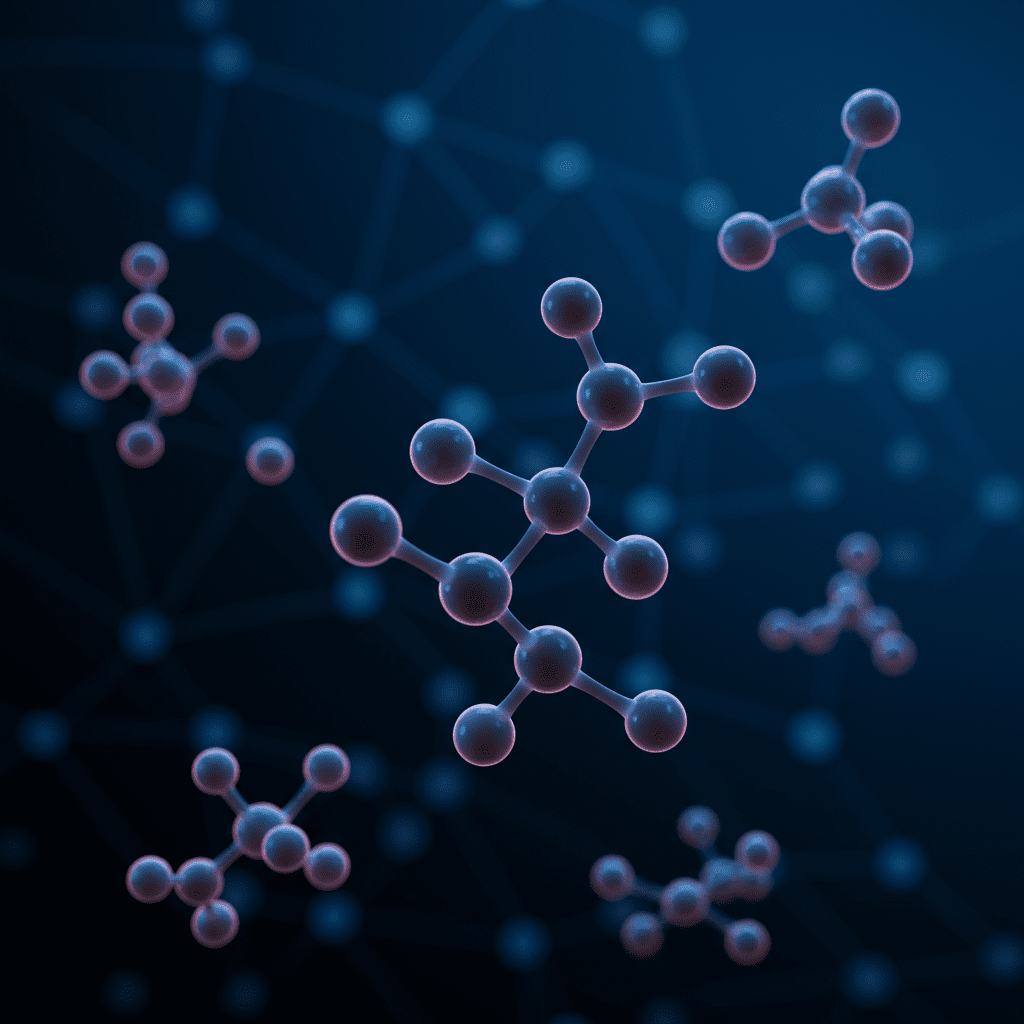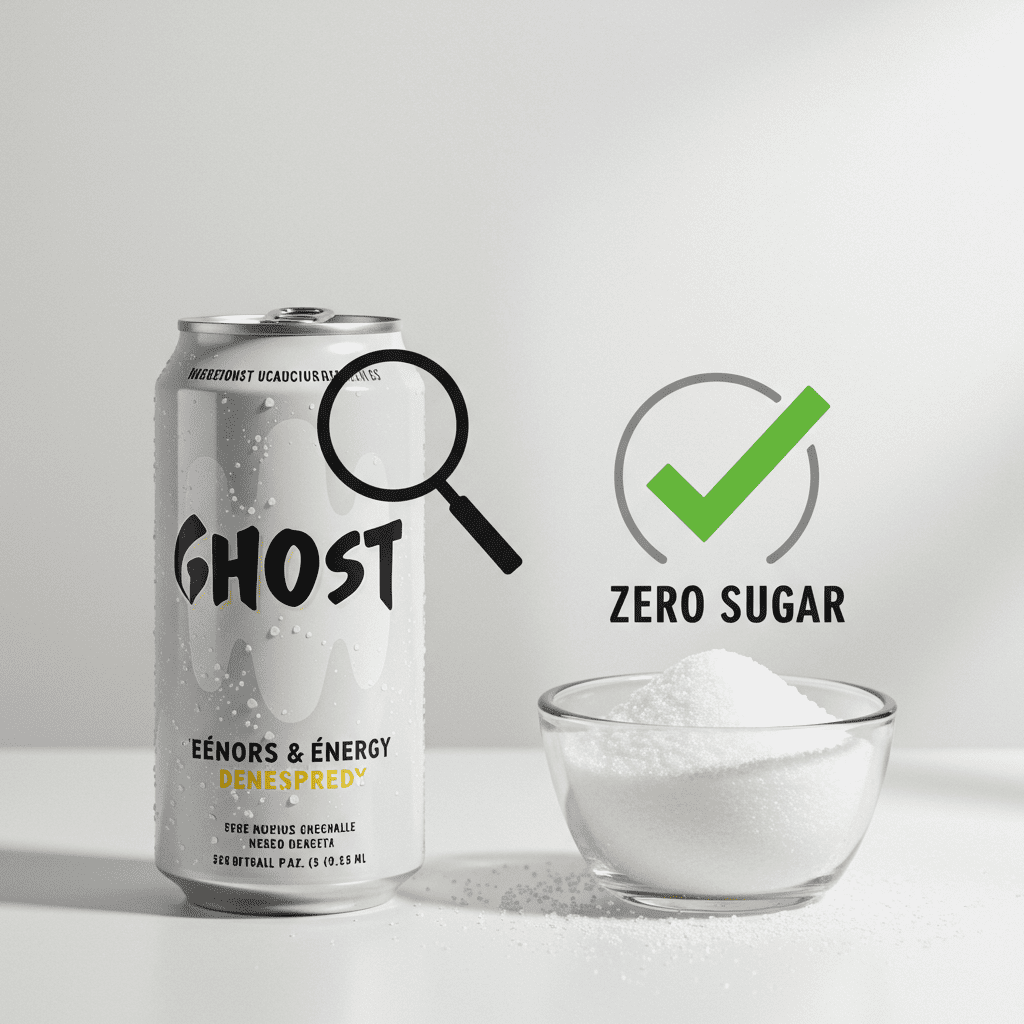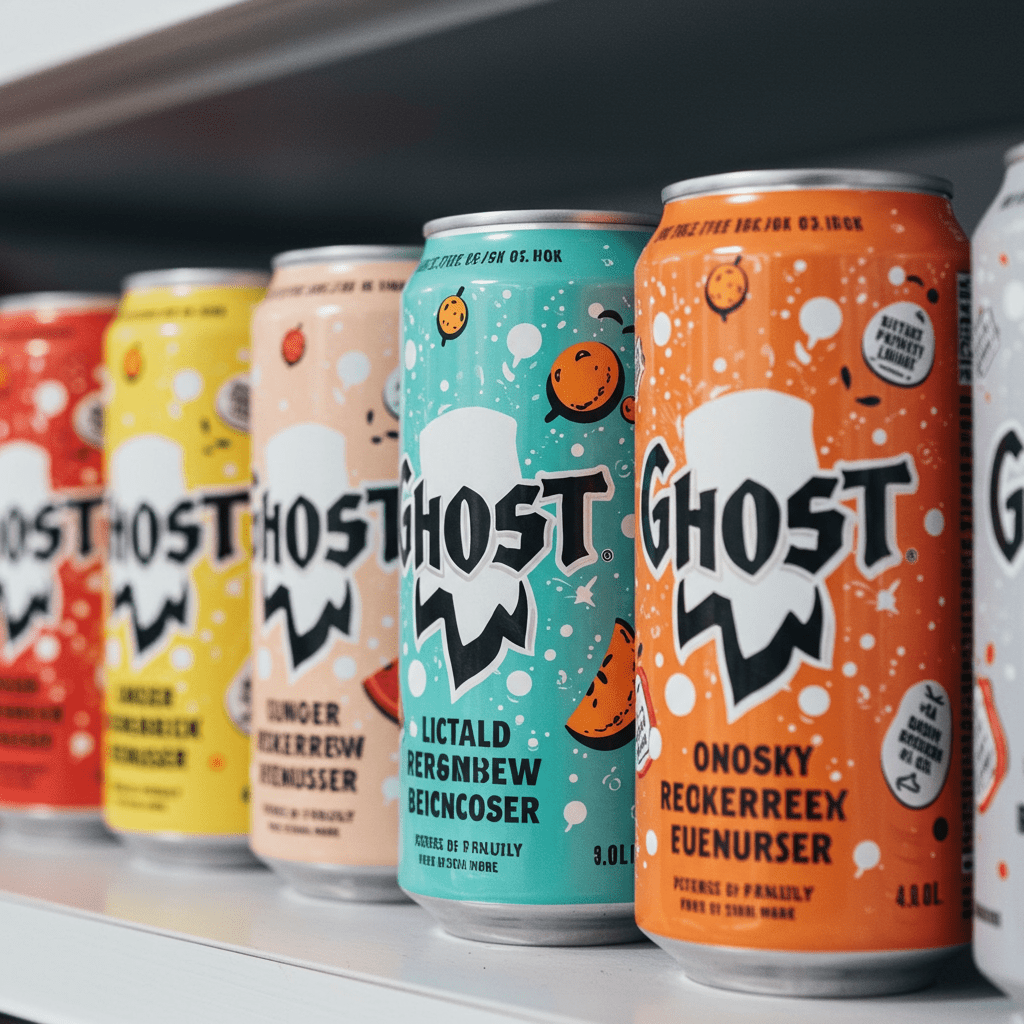Is Ghost Energy a Smarter Choice? A Dietitian’s Honest Review

In the ever-expanding world of energy drinks, Ghost has carved out a unique space. With its flashy branding, gamer-friendly marketing, and collaborations with nostalgic candy brands, it promises ‘feel good energy’ without the sugar.
But as marketing claims get louder, it’s easy to wonder: is Ghost Energy actually a good choice, or just clever packaging? As a registered dietitian, I’m here to look past the hype.
We’ll analyze the ingredients based on scientific evidence, weigh the real pros and cons, and give you a clear, honest verdict on whether Ghost is a smart pick for your energy boost.
- What’s Driving the Ghost Energy Hype?
- How Much Caffeine Are We Really Talking About?
- Beyond Caffeine: A Look at the ‘Focus’ Ingredients
- Do Nootropics Like NeuroFactor and AstraGin Work?
- Are the B-Vitamins Actually Giving You Energy?
- The Upside: What Does Ghost Get Right?
- The Downside: Potential Risks and Side Effects
- Is Drinking Ghost Every Day a Good Idea?
- Healthier Ways to Actually Boost Your Energy
- A Dietitian’s Final Verdict on Ghost Energy
- Conclusion
What’s Driving the Ghost Energy Hype?

Ghost Energy’s popularity isn’t accidental. It has successfully tapped into a desire for ‘better-for-you’ energy.
Its primary appeal lies in its zero-sugar formula, which immediately sets it apart from classic, high-sugar energy drinks. This appeals to health-conscious consumers and those on low-carb or keto diets. Furthermore, Ghost champions ‘label transparency,’ listing the dosages of its active ingredients rather than hiding them in a ‘proprietary blend.’ This move builds trust and caters to a savvy consumer base that wants to know exactly what they’re putting into their bodies. Combined with exciting flavor profiles like Sour Patch Kids and Warheads, it creates a powerful allure: the fun of a treat without the guilt of sugar.
How Much Caffeine Are We Really Talking About?

Each 16-ounce can of Ghost Energy contains 200 mg of natural caffeine sourced from coffee beans. To put that into perspective, a standard 8-ounce cup of coffee typically has around 95 mg of caffeine.
This means one can of Ghost is equivalent to drinking more than two cups of coffee at once. The U.S. Food and Drug Administration (FDA) advises that up to 400 mg of caffeine per day is generally considered safe for most healthy adults. One can of Ghost puts you at exactly half of that daily recommended limit.
If you’re also drinking coffee, tea, or soda, it’s surprisingly easy to exceed that 400 mg threshold, which can lead to unwanted side effects.
Beyond Caffeine: A Look at the ‘Focus’ Ingredients

Ghost includes several ingredients marketed for cognitive and performance benefits. Two prominent ones are Acetyl-L-Carnitine (ALCAR) and Taurine.
Acetyl-L-Carnitine (ALCAR): The can states it contains 1000mg of ALCAR. This compound plays a role in producing energy in the body and is often studied for its potential to counter age-related cognitive decline. According to the National Institutes of Health, carnitine is critical for mitochondrial function. However, for a healthy, young individual, the noticeable cognitive boost from the amount in one energy drink is likely minimal and not well-supported by robust research.
Taurine: Ghost also contains 1000mg of Taurine, an amino acid important for nerve growth and heart health. While it’s a common ingredient in energy drinks, the scientific consensus on its ability to improve mental performance when combined with caffeine is still mixed. Some studies show a synergistic effect, while others find little to no added benefit.
Do Nootropics Like NeuroFactor and AstraGin Work?

Ghost prides itself on including nootropics, or ‘smart drugs.’ Specifically, it uses NeuroFactor™ and AstraGin®.
NeuroFactor™ is a patented extract derived from the whole fruit of the coffee plant. Some industry-backed studies suggest it can increase levels of Brain-Derived Neurotrophic Factor (BDNF), a protein crucial for brain cell maintenance and growth. While intriguing, more independent, long-term research is needed to confirm these effects and determine what it means for everyday focus.
AstraGin® is a blend of astragalus and panax notoginseng extracts. Its manufacturers claim it enhances the body’s ability to absorb other ingredients, like amino acids. As with NeuroFactor™, much of the supporting evidence comes from its own creator, so a healthy dose of skepticism is warranted.
Are the B-Vitamins Actually Giving You Energy?

Ghost drinks are fortified with several B-vitamins, including B3, B6, and B12. This is a common practice in the energy drink industry, often marketed to ‘unlock energy.’ As a dietitian, it’s important to clarify what this means.
As research from the Harvard T.H. Chan School of Public Health explains, B-vitamins don’t provide energy themselves. Instead, they act like spark plugs in a car’s engine; they are essential coenzymes that help your body convert the fuel—carbohydrates, proteins, and fats—into usable energy (ATP).
If you’re deficient in B-vitamins, supplementing can help improve your energy levels. However, for most people who aren’t deficient, consuming extra B-vitamins won’t provide an additional jolt of energy. They are not a source of fuel on their own.
The Upside: What Does Ghost Get Right?

For a fair assessment, we have to acknowledge what Ghost does well. First and foremost, being a zero-sugar beverage is its biggest health advantage. By eliminating sugar, it avoids the empty calories and dramatic blood sugar spikes and crashes associated with traditional energy drinks, making it a significantly better choice for metabolic health.
Secondly, the commitment to transparent labeling is a major plus. By clearly stating the dosage of key ingredients like L-Carnitine and Taurine, Ghost allows consumers to make a more informed decision compared to brands that use ‘proprietary blends’ to obscure their formulas. This transparency is a commendable step in the right direction for the supplement industry.
The Downside: Potential Risks and Side Effects

Despite its benefits, Ghost is not without risks. The primary concern remains its high caffeine content. For some individuals, 200 mg of caffeine can cause anxiety, nervousness, insomnia, and an uncomfortably rapid heart rate.
Furthermore, Ghost uses the artificial sweeteners sucralose and acesulfame potassium. While the FDA considers these safe for consumption, some people are sensitive to them and may experience digestive issues like gas or bloating. As noted in guidance from the Mayo Clinic, these sweeteners are intensely sweet and could potentially impact taste preferences over time. It’s crucial to listen to your body’s response.
Is Drinking Ghost Every Day a Good Idea?

This is a question I hear often, and my answer as a dietitian is straightforward: no, drinking Ghost Energy every day is not a good idea. Daily consumption of high-caffeine beverages can lead to several issues.
You can build a tolerance, meaning you’ll need more caffeine to achieve the same feeling of alertness, creating a cycle of dependency. More importantly, relying on an energy drink daily can mask underlying health issues like chronic fatigue, poor sleep quality, or nutrient deficiencies that leave you feeling hungry and tired.
Instead of addressing the root cause, you’re placing a temporary bandage on the problem. Long-term, high caffeine intake can also put a strain on your cardiovascular system and disrupt natural sleep patterns, which are fundamental to good health.
Healthier Ways to Actually Boost Your Energy

Before reaching for any energy drink, it’s wise to check in with your body’s fundamental needs. Often, fatigue is a signal that can be addressed with simple, healthy habits.
- Hydrate First: Mild dehydration is a common cause of sluggishness. Start with a large glass of cold water.
- Get Moving: A brisk 10-minute walk can increase circulation and oxygen flow to the brain, providing a more natural and lasting energy boost than caffeine.
- Have a Balanced Snack: True energy comes from calories. A snack combining complex carbs, protein, and healthy fats provides sustained fuel without the crash. For example, pairing the healthiest high-fiber bread with a protein source or having an apple with a handful of almonds can prevent energy dips.
These habits address the root of fatigue rather than just stimulating your nervous system.
A Dietitian’s Final Verdict on Ghost Energy

So, where does Ghost land on the health spectrum? It’s not a ‘health drink’ in the way a green smoothie or water is. However, I would classify it as a better-for-you alternative within the energy drink category. Its sugar-free formula is its greatest strength.
For a healthy adult who is not pregnant or sensitive to caffeine and understands the 200 mg dosage, an occasional Ghost energy drink is unlikely to be harmful. It’s best viewed as a tool for occasional use—like before a tough workout or during a long drive—rather than a daily ritual.
The added nootropics and focus ingredients, while sounding impressive, lack the strong scientific backing to be considered a primary reason to choose this drink.
Conclusion
Ultimately, the conversation around Ghost Energy drinks highlights a broader truth in nutrition: quick fixes are rarely the answer to long-term vitality. While Ghost offers a sugar-free, more transparent option compared to its predecessors, it doesn’t replace the foundational pillars of health.
True, sustainable energy is built on a consistent habit of quality sleep, proper hydration, regular movement, and a diet rich in whole foods. Think of Ghost as an occasional supplement to a healthy lifestyle, not a substitute for one.
The smartest choice you can make is to listen to your body and prioritize the basics first.
